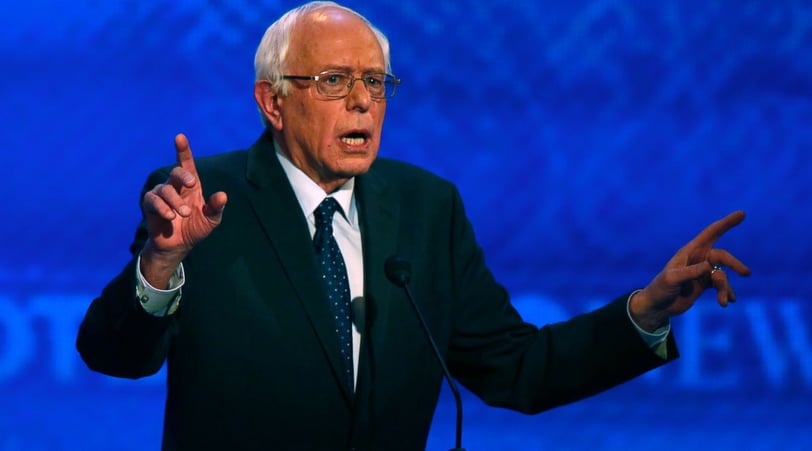The Paradox of Progressivism: Bernie Sanders and the Private Jet Controversy
5/10/20253 min read


The Paradox of Progressivism: Bernie Sanders and the Private Jet Controversy
Introduction
In the ever-evolving landscape of American politics, few figures embody the tension between idealism and pragmatism as vividly as Bernie Sanders. His recent X post, which critiques the undue influence of billionaires in politics, reignites a familiar debate about the consistency of progressive leaders. However, this message is juxtaposed against a growing controversy: Sanders' extensive use of private jets during his "Fighting Oligarchy" tour. This paradox raises critical questions about the intersection of policy, practice, and perception in the fight against systemic inequality. Let's dive into the heart of this issue, exploring its implications for social justice, political integrity, and the future of progressive politics.
The Core Issue: Billionaires and Political Power
Sanders' X post is a succinct yet powerful critique of the American political system. He argues that billionaires in both major parties dictate legislative priorities and candidate selections, a claim rooted in his long-standing advocacy for dismantling oligarchic structures. This perspective aligns with his broader platform, which includes universal healthcare, wealth taxation, and a Green New Deal—policies aimed at redistributing power and resources to benefit the majority. His "Fighting Oligarchy" tour, which has drawn record crowds, amplifies this message, positioning him as a champion of the working class against corporate elites.
However, the tour's logistics have sparked controversy. Federal Election Commission (FEC) filings reveal that Sanders' campaign spent over $221,000 on private jets in early 2025, a figure that dwarfs other candidates' expenditures. This choice, defended by Sanders as necessary for reaching large audiences across multiple cities, clashes with his environmental stance and his critique of wealth inequality. Critics, including conservative voices and former Clinton staffers, have seized on this apparent hypocrisy, labeling it a "champagne socialist" moment that undermines his credibility.
The Hypocrisy Debate: Perception vs. Pragmatism
The private jet controversy is not new for Sanders. During his 2016 and 2020 campaigns, similar criticisms emerged, often framed as a tension between principle and pragmatism. Supporters argue that the demands of a national campaign necessitate such travel, especially given Sanders' age (83) and the grueling schedule of up to five rallies a week. They point to the carbon offsets purchased by his campaign as a mitigation strategy, suggesting an attempt to balance environmental impact with logistical necessity.
Yet, the perception of hypocrisy persists. Sanders' use of private jets, estimated to produce eight times the carbon emissions per passenger compared to commercial flights, directly contradicts his call for systemic change in the transportation sector—a sector he identifies as responsible for 26% of carbon pollution. This contradiction is particularly stark given his criticism of fossil fuel industries and his advocacy for a Green New Deal. For voters concerned with climate justice, this discrepancy may erode trust in his commitment to environmental sustainability.
Moreover, the financial aspect of private jet travel—costing thousands per hour—raises questions about accessibility and elitism. Sanders' message of fighting oligarchy is ostensibly about leveling the playing field, yet his campaign's choices suggest a reliance on resources that are out of reach for most Americans. This tension is exacerbated by the broader context of wealth inequality, where the top 1% control a disproportionate share of resources, a reality Sanders himself highlights.
Implications for Progressive Politics
This controversy is more than a personal critique of Sanders; it reflects deeper challenges within progressive politics. The "Fighting Oligarchy" tour aims to mobilize grassroots support and shift the Democratic Party toward its FDR-era roots, focusing on economic justice and corporate accountability. However, the private jet issue underscores a recurring dilemma: how can progressive leaders maintain moral authority while navigating the practical demands of political campaigns?
The backlash against Sanders also reveals the polarized nature of political discourse. Conservative critics, such as those on X, use this controversy to paint progressives as out of touch, while some progressives defend Sanders by emphasizing the necessity of his travel choices. This division highlights the difficulty of communicating complex policy positions in an era of soundbites and social media scrutiny.
Furthermore, the issue touches on broader social issues, including environmental justice and economic inequality. Sanders' platform seeks to address these challenges, but the private jet controversy suggests a disconnect between rhetoric and action that could alienate key demographics, particularly younger voters who prioritize climate action and authenticity in leadership.
Conclusion: A Call for Reflection
The paradox of Bernie Sanders' private jet use is a microcosm of the challenges facing progressive politics today. It raises critical questions about consistency, credibility, and the practicalities of effecting change within a flawed system. As Sanders continues to champion a vision of a more equitable America, the tension between his ideals and his campaign's choices serves as a reminder that the path to progress is fraught with contradictions.
Thought Questions
How can progressive leaders balance the practical demands of campaigning with their policy commitments to environmental sustainability and economic justice?
Does the perception of hypocrisy undermine the effectiveness of progressive messaging, or is it an inevitable part of navigating complex political landscapes?
What role should voters play in holding politicians accountable for inconsistencies between their actions and their stated values?
This analysis, while focused on Sanders, invites readers to consider the broader implications for social justice and political integrity in an era defined by polarization and paradox.
Explore deep insights on current events and growth.
Vision
Truth
hello@insightoutvision.com
+1-2236036419
© 2025. All rights reserved.
